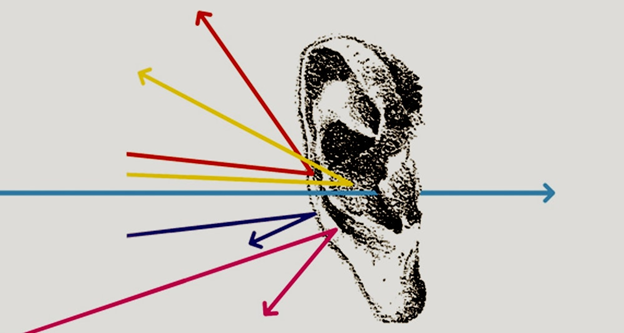Listening to Ourselves
 “Overwhelmed” “Frazzled” “Tired” “Sleepy” “Stressed”
“Overwhelmed” “Frazzled” “Tired” “Sleepy” “Stressed”
My peers shared these words at a community building circle I kept this week. As they said each word, I realized how much I was feeling the same way. Sitting at my desk in the same chair for almost the entire day trying to fulfill my responsibilities in classes, organizations, and to my friends, all through the confines of a zoom square.
I heard myself telling the participants, “We are here to create a space to allow ourselves to talk about our authentic experiences to build community. If you can only bring 50% of yourself to the session today, recognize that. That is okay too. Try to create the space in your mind to truly listen.” As I went down the script of the circle, I felt myself understanding on a profound level how much I needed to hear those words as well. I realized leading restorative justice practices at Duke is sometimes a selfish endeavor for me. It gives me a chance to check-in with myself and remind myself of the practices I hope to apply in my life at Duke and beyond.
The most important thing that I need to remind myself everyday is to listen – the keystone principle of all restorative practices. In restorative justice, listening means laughing, frowning, nodding, and smiling as community members share glimpses into their lives. It means empathizing and being willing to invest emotional energy into the space you have co-created. It means accepting some degree of vulnerability to receive warmth and human connection in return. Listening means offering your full presence and listening to understand rather than to respond. Sometimes at Duke it feels like classes, networking sessions, and many social activities are competitions to determine who can respond the fastest and most eloquently. In RJ, we hope for the exact opposite. Sometimes, passing in a circle is more meaningful than speaking.
The practice of listening is harder than ever in a semester overwhelmed by back-to-back classes, limited social activities, and a level of uncertainty. But when you create the space to do it, listening creates a sense of peace and allows you to step out of your body and mind to practice empathy. Listening in circles at Duke has made me feel less alone and isolated, and more comfortable in recognizing and holding my discomforts and insecurities.
One friend in the community texted me after the circle “What a rare gem today was, I feel calmer.” After almost every circle I keep, I feel the same way. THIS is the power that restorative practices hold. Feeling like a student isn’t easy during the pandemic. So we need to listen to each other and more importantly listen to ourselves.
